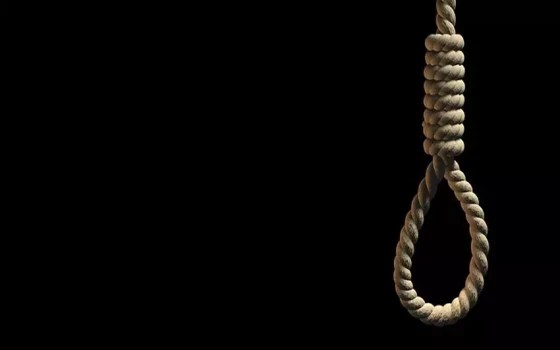
Human rights experts urge Iranian authorities to stop "horrific wave of executions"

- Europe and Arabs
- Saturday , 20 May 2023 13:14 PM GMT
New York - Tehran: Europe and the Arabs
UN human rights experts have condemned the execution of three Iranian men, Majid Kazemi, Saeed Al Yaqoubi and Saleh Marhashmi, and urge the Iranian government to stop the "horrific wave of executions".
According to the UN news bulletin, a copy of which we received on Saturday morning, the experts expressed grave concern over reports of unfair proceedings in the case. In a press release, the experts said: "We are deeply concerned that these men have been subjected to torture or other ill-treatment for the purpose of extracting forced confessions."
The three men were arrested on 21 November 2022 during protests in the city of Isfahan following the demonstrations that erupted after the killing of Mahsa Amini on 16 September.
They were then sentenced to death on charges of moharebeh or "enmity against God" and participating in the killing of three Iranian officials, according to the experts.
“The execution of the three men on Friday morning underscores our fears that the Iranian authorities continue to disregard respect for international law. The death penalty was imposed following judicial proceedings that failed to meet accepted international standards for fair trial or due process,” the experts said.
Reports indicate that allegations of the accused's involvement in the killing of police officers remain unconfirmed and questionable. The officers were allegedly killed by gunshots during protests in Isfahan province on November 16, 2022. However, the charges against the defendants do not explicitly accuse them of “murder.”
The three men appealed the verdict on May 6, 2023, but the Supreme Court upheld their death sentences, despite a pending request for judicial review.
On May 17, their families were called to visit them and the prison authorities informed them that this visit would be their last meeting.
"The death penalty is a violation of the right to life and the most cruel, inhuman and degrading punishment," the experts said.
Executions are much higher.
Since January 1, Iranian authorities have executed at least 259 people - including a disproportionate number of people belonging to minorities - mostly for drug-related offences, according to experts.
They said the exact number of executions is not known due to a lack of government transparency, and the number is likely to be higher.
The experts expressed their shock "that the authorities went ahead with executions despite the pending judicial review".
They urged the Iranian government to stop this "horrific wave of executions".
The international experts are:
Javed Rehman, Special Rapporteur on the situation of human rights in the Islamic Republic of Iran; Margaret Satterthwaite, Special Rapporteur on the independence of judges and lawyers; and Maurice Tidbal Baines, Special Rapporteur on extrajudicial, summary or arbitrary executions.
It is noteworthy that the special rapporteurs and independent experts are appointed by the Human Rights Council in Geneva, which is an intergovernmental body responsible for the promotion and protection of human rights around the world. Rapporteurs and experts are charged with studying human rights situations and submitting reports on them to the Human Rights Council. It should be noted that this position is ceremonial, and these experts are not considered employees of the United Nations and do not receive remuneration for their work.












No Comments Found